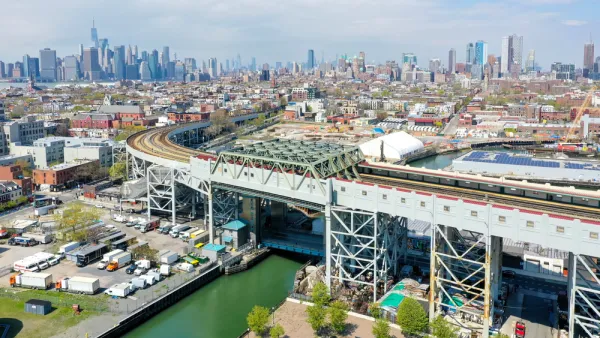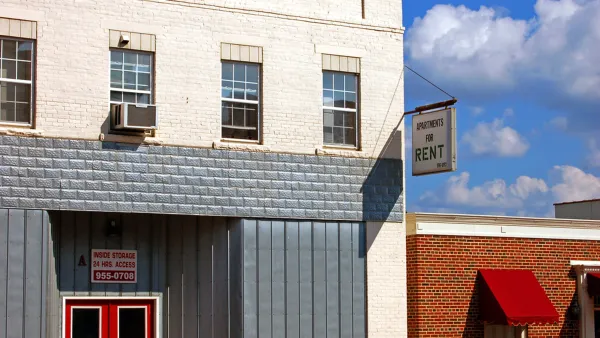San Francisco loves process and fears change. It's costing residents in more ways than housing, laments David Prowler, former Special Assistant to Mayor Willie Brown.
San Francisco is a city with one-tenth the population of New York City, and one-eighth the amount of transit rail track. However, it forces people to live outside the city, to commute farther to work or home. San Francisco's Planning Department processes three times more applications than New York City's—not because there are more projects but because nearly everything requires discretionary review, writes David Prowler, former Special Assistant to Mayor Willie Brown, former Planning Commissioner, and real estate consultant. He continues,
New York and San Francisco are both paying the price of gentrification and revival. People get pushed out, or crowded, or have long commutes. But the two cities are different in key ways. In San Francisco, if you want a walkable neighborhood with cafes and bakeries and the amenities that Jane Jacobs championed, you have few choices. San Francisco doesn’t have the equivalent of a Cobble Hill, a Jackson Heights, or a Hoboken, and lacks the reliable, regional public transit system that would make longer commutes bearable.
The reason for this difference, he argues, is fear of change. It has become the city's culture, its DNA. San Franciscans use process to thwart change:
Paradoxically, in a city famed for new ideas, resistance to change is a cherished San Francisco value. . . That’s because public review—with generous opportunities to appeal—is a cherished sport here.
While Prowler is not hopeful that the city's dysfunctional resistance to change will soon subside, he believes some key areas need to be addressed:
Most development projects should go forward if they comply with planning codes. The arduous, costly, and risky review and appeals processes should be streamlined. The California Environmental Quality Act should be amended so that it encourages smart growth rather than sprawl. Small infill projects should be exempted.
FULL STORY: San Francisco: The Status Quo City

Analysis: Cybertruck Fatality Rate Far Exceeds That of Ford Pinto
The Tesla Cybertruck was recalled seven times last year.

National Parks Layoffs Will Cause Communities to Lose Billions
Thousands of essential park workers were laid off this week, just before the busy spring break season.

Retro-silient?: America’s First “Eco-burb,” The Woodlands Turns 50
A master-planned community north of Houston offers lessons on green infrastructure and resilient design, but falls short of its founder’s lofty affordability and walkability goals.

Test News Post 1
This is a summary

Analysis: Cybertruck Fatality Rate Far Exceeds That of Ford Pinto
The Tesla Cybertruck was recalled seven times last year.

Test News Headline 46
Test for the image on the front page.
Urban Design for Planners 1: Software Tools
This six-course series explores essential urban design concepts using open source software and equips planners with the tools they need to participate fully in the urban design process.
Planning for Universal Design
Learn the tools for implementing Universal Design in planning regulations.
EMC Planning Group, Inc.
Planetizen
Planetizen
Mpact (formerly Rail~Volution)
Great Falls Development Authority, Inc.
HUDs Office of Policy Development and Research
NYU Wagner Graduate School of Public Service



























